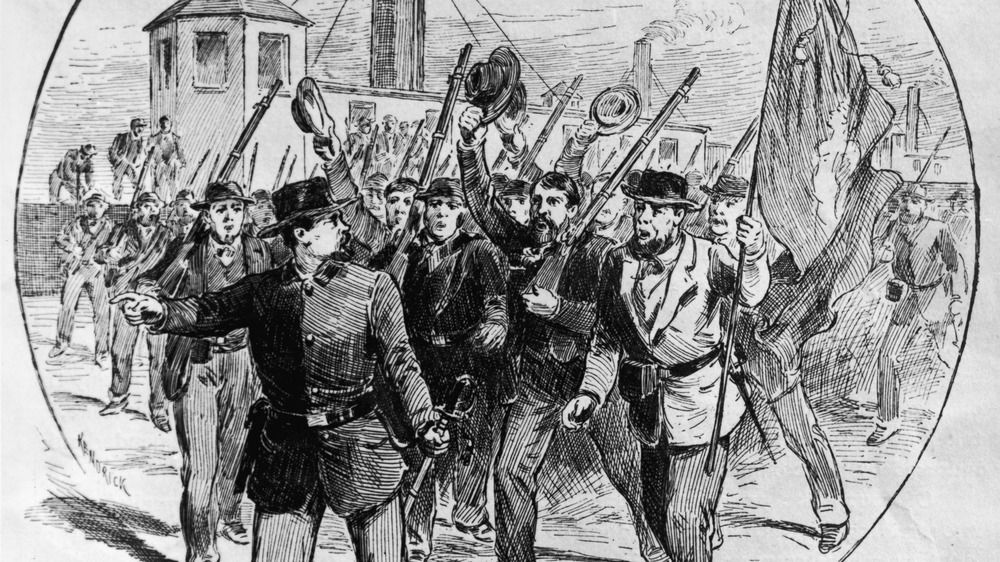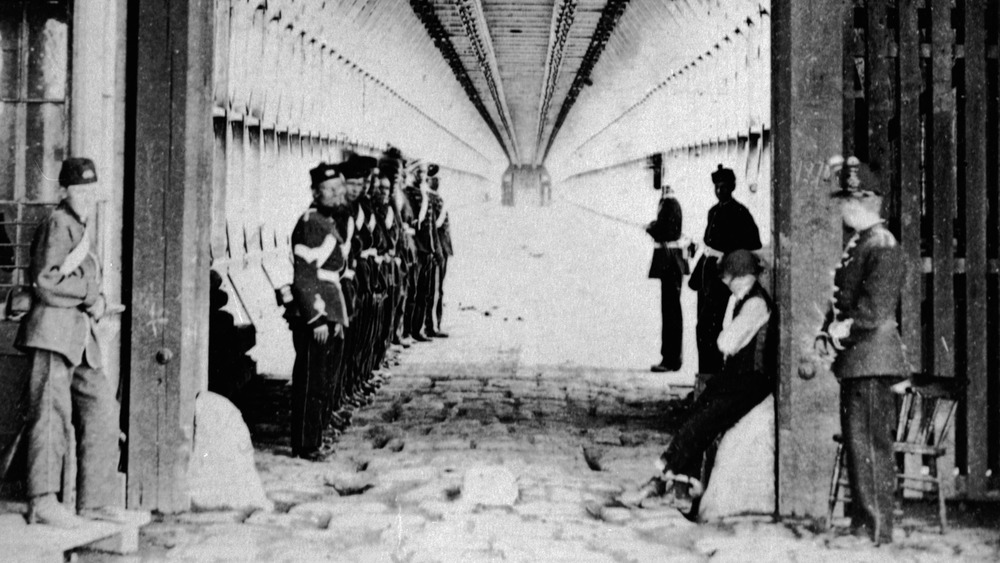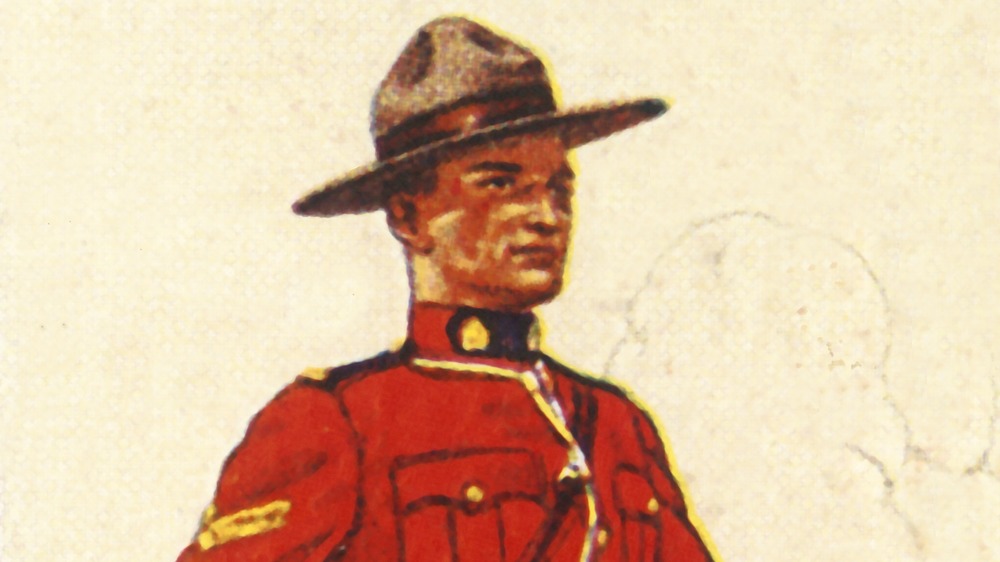The Time Canada Was Raided By An Irish Secret Society
Canada rarely sees invaders at its doorstep. But there was a time in its history that some people came close to stealing Canadian land. Yes, Canada was at one point held hostage by an Irish secret society called the Fenians hell-bent on taking Canada as revenge on the British.
The Fenians were Irish patriots who moved to the United States but were also active in the United Kingdom, explained Encyclopedia Britannica. They named their group after the legendary rebels Fianna Eireann, which was led by Finn MacCumhaill, who was, well, a legend in the most literal sense. The group was founded in 1858 by John O'Mahoney in the US and James Stephens in Ireland. Many Irish immigrants had grown angry at the British after what happened during the Great Potato Famine. Others felt disdain for how the British crushed the Young Ireland movement, which sought independence. Both groups capitalized on this anger and saw their numbers swell to more than 10,000.
Many Irish immigrants fought during the American Civil War, mainly on the Union side, and learned military tactics along the way, said the Niagara Falls Museum. Many of those immigrants were members of the Fenians, so this experience proved essential later on. According to The Canadian Encyclopedia, they saw an opportunity to finally realize their dream of Irish independence, and the Fenians began planning their next moves.
The raids begin
Factions emerged within the Fenians. One group insisted they push through with their traditional goal: armed rebellion in Ireland and get rid of English rule. But many, especially those in North America, felt rebellion in Ireland was pointless. The Niagara Falls Museum said a plan materialized to invade Canada, essentially taking it from the British and establishing an Irish government, but in exile.
The Fenians planned a three-pronged attack. First, they were going to attack provinces in Ontario to draw the Canadian militia from Quebec, or Canada East, as it was called then. A larger group of Fenians would move into Quebec to cut off communication lines and capture a large swath of Canada.
The Canadian Encyclopedia noted the Fenians took several practice runs, attacking small settlements before their big push in June 1866. In May, the Fenians gathered troops along the Canada-US border. Led by John O'Neill, a former cavalry officer in the US Army, the Fenians captured the town of Fort Eerie in Quebec. They arrested the town council and seized its telegraph and railway lines. The rebels cut off outgoing communications. The Canadian militia moved in, but soon found that the well-stocked and well-trained Fenians were a little too much for them. The Canadians waited for reinforcements, and on June 2, the Battle of Ridgeway began.
The Fenians believed Irish-Canadians would immediately jump to their cause. Instead, several Irish-Canadians fought them, and they were forced to retreat to the US, where they were arrested.
It led to a different country rising up
Undeterred, even though the US government promptly declined support, the Fenians took on more minor raids. Around 200 Fenians moved to capture the town of Huntington near Montreal. However, there was a large number of Canadian militiamen awaiting them.
The raids ended in 1871 when the Fenians tried once again to take Canada. By then, Canada had galvanized and confederated, meaning the country had come together as a country, not just a collection of provinces. A renewed sense of nationalism inspired men to join the Canadian army and the newly created Mounties, and they were able to repel the Fenians who tried to take Manitoba.
Support for the Fenians died out, and the group disappeared soon after. In 1905, however, another group fighting for Irish independence gained prominence, the Sinn Fein, founded by a former Fenian.
The Fenians wanted to galvanize support for the ongoing troubles faced by the Irish. Angered by the often cruel treatment of the British, all they wanted to do was establish their own country. They inspired a whole other country to stand up for itself instead. If it weren't for the Fenian raids, Canada might have taken longer to come together, and the country we know now, with its strong military and sense of nationalism, probably would not exist.


